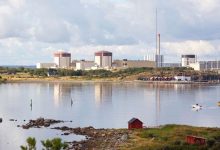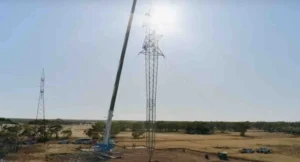A scorching European summer has been doing its best to prove that renewables are not the only energy sources at the mercy of the elements – and that climate change is a thing – with nuclear reactors from France to Finland being shut down or their output restricted due to record heat.
Over the weekend, French energy company EDF said it was forced to temporarily halt four nuclear reactors in soaring temperatures, including a reactor at the country’s oldest plant, Fessenheim, to stop it from overheating the water in the nearby river.
The Independent reports that EDF had already shut down three other power plants near the Rhine and Rhone rivers for similar reasons earlier last week.
Nuclear plants like these use the river water to regulate the temperature of their reactors, discharging warm water back into the waterway. But restrictions are put on the volume of water plants can use as the temperatures rise, to protect the rivers’ ecosystems.
In Sweden, state-owned power company Vattenfall was forced to close the 900MW number 2 reactor at its Ringhals nuclear plant on Monday, when the temperature of the sea water used to cool that plant reached its limit of 25°C – threatening the safety and function of the reactor.
Other plants in the Nordic region, while not completely shut down, have had to curb the power output of their reactors to avoid worse, and more dangerous outcomes.
Finland’s Fortum reduced power at its Loviisa plant last week when water temperatures reached 32°C, close to its threshold of 34°C.
As Reuters explains, the northern European summer has been 6-10°C above the seasonal average so far and has not only caused outages for nuclear, but depleted the region’s hydropower reservoirs.
It has been so hot in Finland, that a a supermarket chain invited customers to spend the night at its air-conditioned store in Helsinki on the weekend, because so few homes in the Nordic country actually have air-con.
And in Sweden – which is also suffering through a drought that sparked dozens of severe forest fires through July – the record heat has melted a glacier on the nation’s Kebnekaise mountain, rendering it no longer the country’s highest point.
In fact, according to researchers at Oxford University and the World Weather Attribution network, a number of cities and towns in Norway, Sweden and Finland hit all-time highs this summer, with towns as far north as the Arctic Circle recording nearly 90°F temperatures.
And the weather is not just hotter than normal, but also more erratic, reports the New York Times.
“Torrential rains and violent thunderstorms have alternated with droughts in parts of France. In the Netherlands, a drought — rather than the rising seas — is hurting its system of dikes because there is not enough fresh water countering the seawater,” it says.
“The preliminary results of the Oxford study found that, in some places, climate change more than doubled the likelihood of this summer’s European heat wave.”








